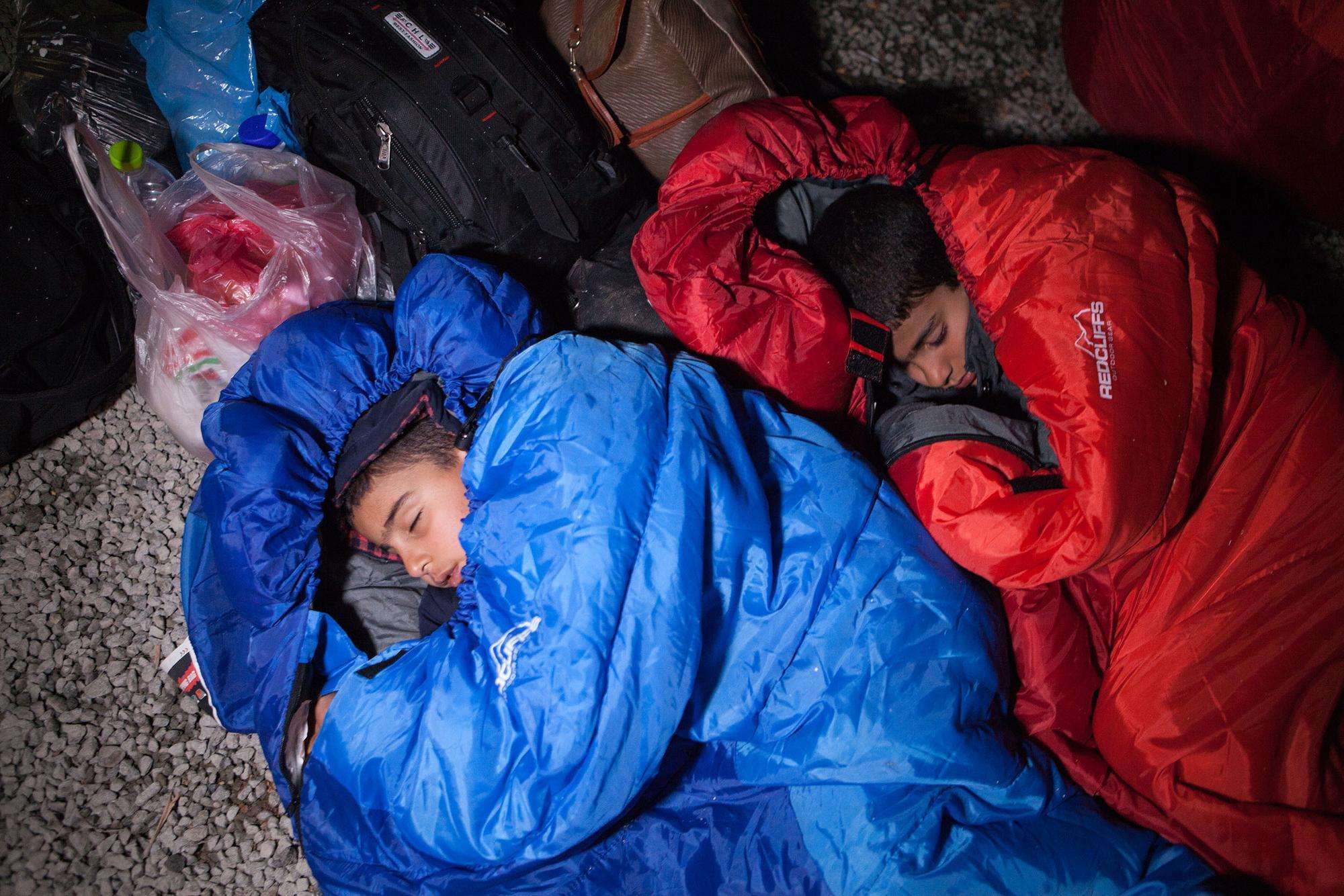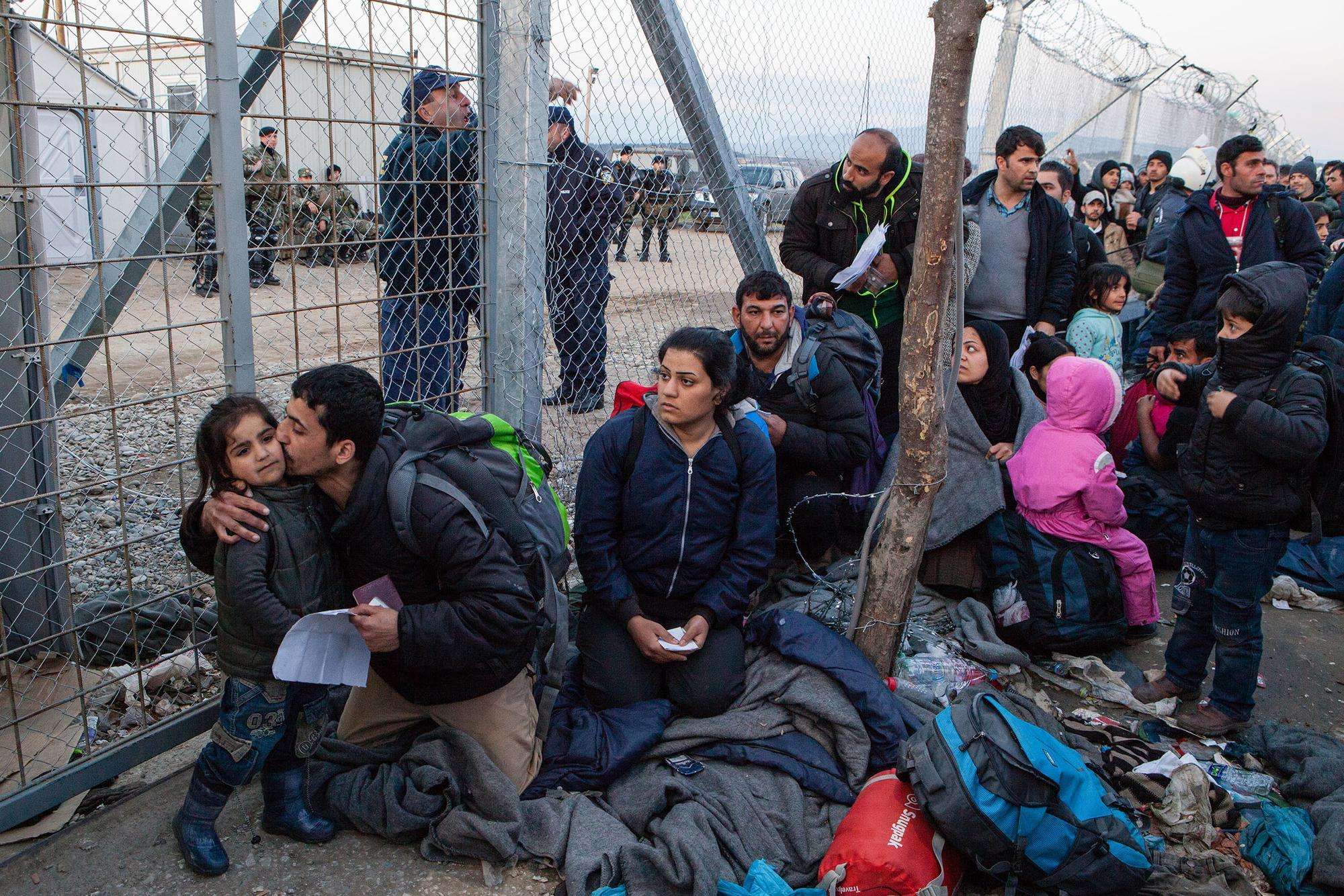A seemingly endless stream of people line the road that winds through the wheat fields near the Greek village of Idomeni. People carrying large bags on their shoulders. People with babies in their arms. People putting one foot in front of the other, over and over again, no matter the load they bear.
They arrive day and night, but only a fraction of the refugees one sees here will gain permission to continue their journey—into the Former Yugoslav Republic of Macedonia (FYROM), and then, presumably, onwards to western and northern Europe. The rest end up stranded in conditions that now bear all the hallmarks of an unsustainable humanitarian crisis.
There are more than 11,000 people crammed into a transit camp in Idomeni that was designed for only 1,500. There is little in the way of services or information. Winter remains in full force and the refugee policies of various European countries change haphazardly, with little forewarning, compounding the uncertainty. Anxiety is therefore rife and health issues are multiplying.
Doctors Without Borders/ Médecins Sans Frontières (MSF) is currently spending €50,000 per day in Idomeni to provide shelters, sleeping bags, tents and basic assistance. In the past few days, MSF teams helped increased the camp’s capacity—it can now absorb roughly 4,000 people—and provided some 34,000 meals daily.
Staff also treated more than 750 people over the past four days alone—women and children younger than five, primarily—mainly for respiratory infections, gastroenteritis, colds, and fevers, all of it linked to the poor hygiene conditions and the lack of shelter.
Many other volunteers and NGOs are providing support in the area, too, but the needs are growing every day. And it could get worse. Some 2,000 refugees have been arriving in the Greek islands every day; if that pace holds, there could be up to 100,000 here by month’s end.
Many families are among those now stuck in Idomeni camp. A man who worked as an English teacher before leaving Syria says he has been on the road for two months: “I’m here with my family, sleeping in this small tent. We never thought to find ourselves in this horrible situation.
"When we left our city, my kids wanted to bring their toys and their books with us," he continues. "I was telling them, 'don’t worry. We will get new toys in our new house.' They keep asking, ‘where is our new house?’”
Confusion, Stress, Desperation
In MSF’s clinic in Idomeni, staff sees whole families, pregnant woman, children, disabled people, and elderly people suffering from chronic diseases. Many have been sleeping outside in the cold, with just with a sleeping bag to keep them warm. MSF arranges referrals when needed as well, as staff did recently for a pregnant woman from Aleppo whose water broke in the clinic. (She gave birth to a healthy boy in a hospital in Polykasto.)
One 24-year-old Palestinian refugee who fled his home in Syria not long ago said he was exhausted and afraid: “This is making me very nervous. I don’t know what is coming next. This waiting is killing me. We feel ignored here.”
“There is confusion, stress, lack of reliable information,” says Daniela Oberti, an MSF nurse in Idomeni. “There is a growing feeling of anger. Many refugees have been waiting here for over ten days. People are extremely exhausted.”
Says MSF’s Marie Elisabeth Ingres, “People are desperate. They have already fled from dramatic situations in their home countries and they didn’t expect to find such an inhuman response once in Europe. These people, amongst them many vulnerable groups, have not been given real options as to where they can access assistance and protection. They do not see other choice than continuing their journey.”
A man named Mustafa who fled northern Syria with his wife and two young cousins adds: "I've been here for a week and I have no idea how much longer I'll have to stay. The border is closed and they don’t allow us to cross. The camp is unlivable. It is horrible.
“I want to find a safe way to continue,” he adds. “I want to find a place where I can raise my son. Help us to find a safe path.”





